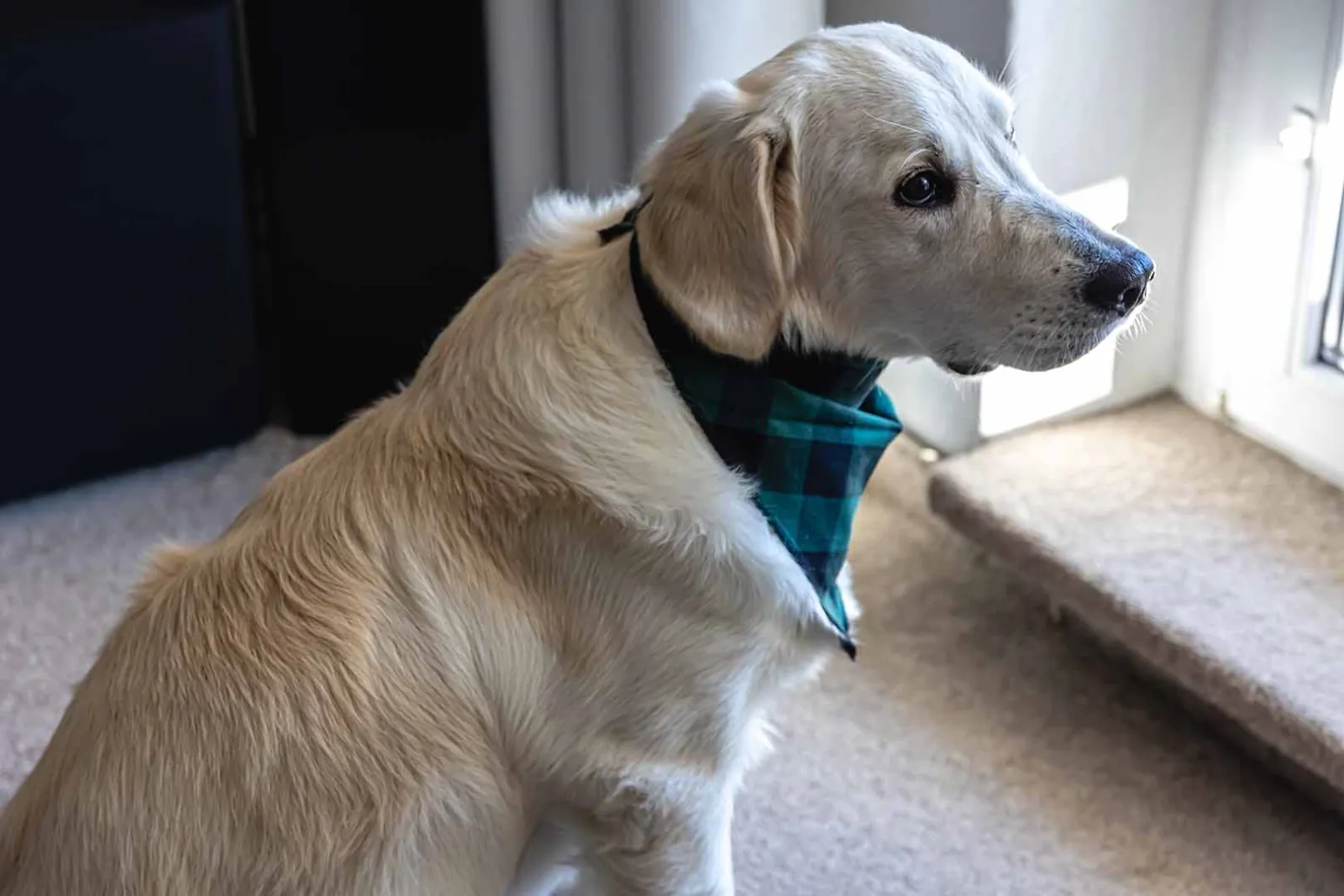Why Does My Dog Whine As I Am Preparing Their Food?

- Understand how anticipation in dogs leads to whining before meals.
- Learn why consistent feeding routines help manage excitement.
- Discover how classical conditioning shapes your dog's food-related behavior.
If your dog whines, paces, or even jumps while you're preparing their food, you're not alone. Many pet owners notice their dog getting overly excited during mealtime, and while it may seem like impatience, it's actually a result of anticipation in dogs and learned behavior.
Dogs thrive on routine, and their reactions to meal prep are often shaped by feeding routines, dog psychology, and classical conditioning. In this blog, we'll explore why dogs whine before eating and how you can encourage calmer mealtime behavior.
Anticipation in Dogs: Why They Whine Before Eating
One of the biggest reasons your dog whines before meals is anticipation in dogs. Dogs have an incredible sense of routine and can quickly pick up on cues that signal food is on the way. Whether it's the sound of kibble pouring, the opening of a can, or the clinking of their food bowl, these small triggers create excitement.
Signs of anticipation in dogs before meals include:
- Whining or barking as soon as you enter the kitchen
- Restlessness, pacing, or jumping in excitement
- Increased drooling when food is being prepared
- Following you closely and watching every movement
While this behavior is normal, excessive whining can become a nuisance. Managing anticipation in dogs requires consistency and training to encourage calmer responses.
The Role of Feeding Routines in Your Dog's Behavior
Dogs thrive on structure, and establishing consistent feeding routines is crucial in managing their mealtime excitement. A predictable schedule helps them understand when food is coming, reducing anxiety and excessive whining.
Benefits of a Consistent Feeding Routine:
- Reduces anxiety: Dogs feel more secure when they know what to expect.
- Prevents overeating: Scheduled meals help control portion sizes and prevent excessive hunger.
- Encourages patience: A structured feeding routine teaches your dog that food will come at a set time, discouraging frantic behavior.
If your dog whines excessively during meal prep, try reinforcing calm behavior by making them sit before receiving their food. Over time, a steady feeding routine will help regulate their excitement.
Dog Psychology: Understanding Your Pet's Mealtime Behavior
To understand why dogs react so strongly to food preparation, it helps to look at dog psychology. Dogs have an instinctual drive to secure food, which dates back to their wild ancestors. In the wild, food was never guaranteed, so anticipation and excitement played a key role in survival.
Key Psychological Factors That Influence Whining Before Meals:
- Association with Positive Rewards: Your dog knows food is coming and reacts with enthusiasm.
- Reinforced Behavior: If whining has led to being fed faster in the past, your dog may continue doing it.
- Emotional Response: Excitement and joy can be overwhelming, making it hard for some dogs to remain calm.
By understanding dog psychology, pet owners can take steps to reinforce positive behaviors and reduce excessive whining before meals.
Classical Conditioning: Why Your Dog Associates Actions with Mealtime
The reason your dog gets excited when they hear their food bowl or see you walk toward the kitchen is due to classical conditioning. This is a learning process where dogs associate specific sounds, sights, or actions with food.
How Classical Conditioning Works in Mealtime Behavior:
- Step 1: Your dog hears the food bag rustling or the sound of a can opening.
- Step 2: They know food follows these sounds, so they begin getting excited.
- Step 3: Over time, these cues automatically trigger excitement, even before food is served.
If you want to reduce whining, you can use classical conditioning to your advantage by introducing calmness training. For example, only preparing food once your dog is quiet and waiting patiently can help break the cycle of excessive whining.
How to Reduce Whining Before Mealtime
If your dog's whining has become excessive, try these tips to encourage calm behavior:
1. Reinforce Calm Behavior Before preparing food, ask your dog to sit and wait quietly. If they start whining, pause and only continue once they are silent.
2. Use Slow Feeding Methods Puzzle feeders or slow-feed bowls can help channel excitement into a focused task, reducing excessive anticipation.
3. Keep a Strict Feeding Routine Feeding your dog at the same time each day reduces anxiety and teaches them to expect food at a set time.
4. Ignore Attention-Seeking Whining If your dog whines excessively before meals, avoid giving attention. Over time, they will learn that whining does not speed up the feeding process.
5. Provide Mental Stimulation Since mealtime is an exciting event, providing additional mental stimulation for dogs throughout the day — such as playtime and training — can help reduce overexcitement.
Whining during meal prep is often a result of anticipation in dogs, learned behavior through classical conditioning, and the role of dog psychology in their feeding habits. While excitement before meals is natural, excessive whining can be managed through consistent feeding routines and positive reinforcement.
By setting clear expectations, reinforcing calm behavior, and using training techniques, you can help your dog approach mealtime with patience and composure.
Forever Vets is here to support you with expert advice on pet behavior, health, and wellness. Reach out to us if you need additional guidance in managing your dog's behavior, our team is happy to help!


